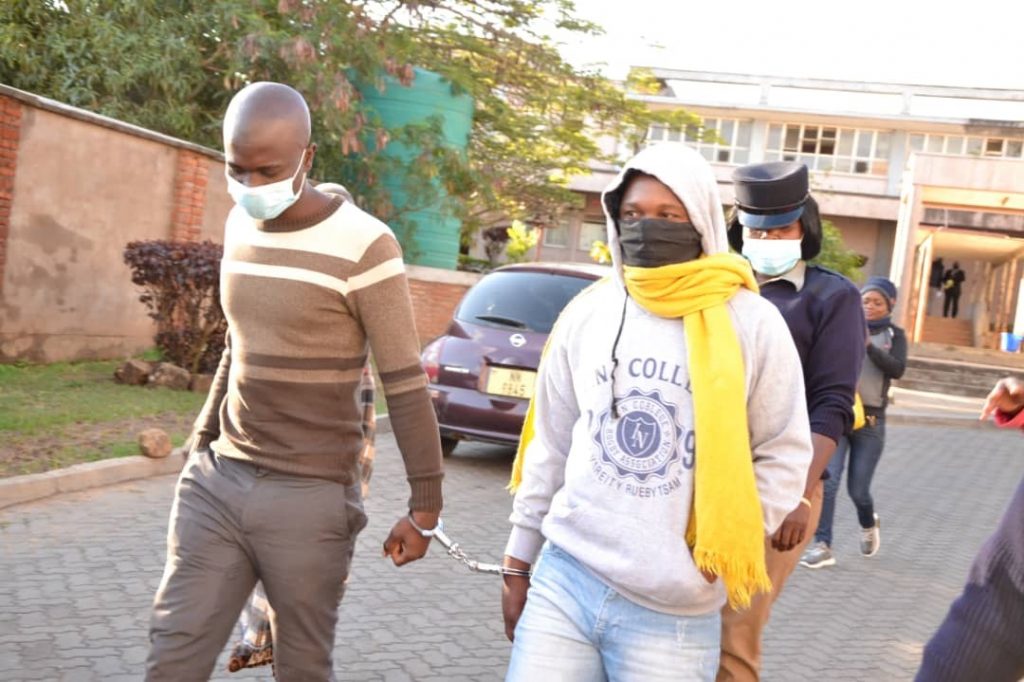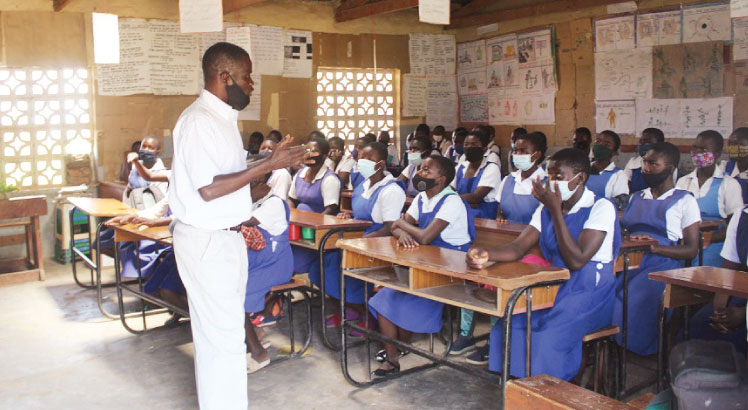Rapist in police uniform
On December 12, three teenagers from the populous Bangwe Township in Blantyre set off for overnight prayers in Bvumbwe just outside the commercial city.
However, the two girls and a boy were halted near Misesa Cemetery by lights of a police vehicle.

A similar swoop in March 2015 riled Mayeso Gwanda, a seller of plastic carrier bags in the city, to petition the Constitutional Court to annul a colonial rogue and vagabond law neglected by lawmakers since Malawi’s independence in 1964. The vendor arrested at Chichiri Roundabout around 4am was shocked that Section 184(1)(c) of the Penal Code was being selectively invoked against poor pedestrians as wealthy motorists sped off.
The trio intercepted at Misesa was admittedly equally baffled.
“We sat down, feigning to be tired after a long walk, but the police had no mercy; they called us shameless sex workers if not cultists who unearth caskets from the gravesite,” one recounts. “The cops asked us to save ourselves by paying kickbacks.”
The source recalls that the patrolmen extorted K8 000 from one girl and the other had nothing to pay, but the boy, who had K5 000, “refused to pay unless everyone walked free”.

“The angry officers hurled us into the police vehicle and took us to Limbe Police Station on charges of idle and disorderly conduct though our only crime was walking at night,” the insider says.
However, a scandal happened in the uppermost floor of the British-funded police building shortly after Andrew Chamgaga, the officer in charge of the night shift, identified the three as choristers at his church. The uniformed officer raped the penniless teen girl twice in police custody.
The victim’s parents are only happy that the law enforcer has been convicted after winning bail and reportedly threatening to kill the girl if she testified against him.
While awaiting a sentence that would deter other criminals in police uniform, the 37-year-old woman tells The Nation: “I was disgusted because my daughter was not raped by an ordinary person, but a police officer on duty who took advantage of a State-sponsored uniform and building to commit the crime he is supposed to stop.
“I asked God to have mercy on me. I have raised my daughter single-handedly from nursery school to university where she has dropped out because of shame caused by rape and lack of fees since I have blown all my business capital searching for justice.”
The woman knew that the court battle against a law enforcer would be long and costly. She no longer sells kitchenware, clothes and other imports from Tanzania.
“Bad policing has affected my entire family. The fall of my business that generated about K300 000 a month has reduced me to a beggar. I lost my capital and savings,” she states.
The one-time cross-border trader sounds upset that the police still use petty offences from colonial rule to demand sex and bribes from the poor caught walking in the night.
She says Malawi will not be fully independent until the lawmakers review repressive laws inherited from Britain in 1964.
He asks: “On July 6, a week before the rapist was convicted, the nation commemorated the 57th independence anniversary, but what is independence if we, the poor majority, cannot move freely at night because the police happily use outdated laws to victimise us? If it’s not money, they want sex.”
Sluggish reforms
The lamentation evokes Gwanda’s battle to beat British legacy following his arrest on the way to Limbe fish market. Ironically, the pedestrian detained for being found on the street on the wrong side of midnight was taken to police in a vehicle of a similarly blameworthy motorist left scot-free.
The vendor successfully moved the Constitutional Court to declare the rogue and vagabond law unconstitutional and invalid.
However, the police now use the remaining vagrancy or anti-poverty laws to restrict the Bill of Rights and non-discrimination enshrined in the Constitution.
The continued sweeping arrests, worsened by 10pm-6am Covid-19 curfews, personify Executive arrogance to review the selectively applied laws in line with the Constitutional Court ruling read by Judge Zione Ntaba.
The verdict reads: “The Executive is encouraged to make a detailed assessment of vagrancy laws in Malawi generally and, where appropriate, initiate legislative changes in order to ensure such laws’ consistency with the Constitution….
“As the Executive is examining the solutions of implementing this decision, it should consider a full review of the vagrancy laws like Section 180 of the Penal Code so as to be in line with Constitutional dictates but to avoid future constitutional challenges.”
Four years on, Parliament and Malawi Law Commission have not complied with the ruling.
Malawi Human Rights Commission (MHRC) executive secretary Habiba Osman says: “The country requires a comprehensive analysis of all laws that require reform. The Law Commission should set up a Special Law Commission to review all archaic laws.” Following the landmark ruling, states Osman, MHRC has held consultations with stakeholders, both at national and international level, to have the laws repealed.
She explains: “We have also made submissions and recommendations through international human rights reporting mechanisms. However, it must be realised that the mandate for legislative reform rests with the Law Commission and the Ministry of Justice.
“The ministry must take steps to present bills to Parliament to amend some sections of the Penal Code. After the court ruling, there was need for Government to implement the decision by tabling amendment bills in Parliament.”
Gwanda is disappointed that the petty offences remain unchanged much to the disadvantage of over half of Malawians stuck below the poverty line.
“I went to court to liberate poor Malawians. I did my part and duty-bearers have to do theirs as required by law. But it appears they are on their own,” he says, irked by random arrests for idle and disorderly conduct.
I wish I could return to court and jolt negligent agencies to act swiftly. I’m disappointed that those who get fat pay to make laws don’t care about defenceless citizens,” he says.
Lawyer Chikondi Chijozi, who co-prosecuted the case, says the cop’s conviction shows no one—not even a gun-brandishing police officer—is above the law.
She wrote on Facebook: “ Bravo to the Judiciary for serving justice today. I hope the victim can start the healing process.
“The other issue to reflect on is how petty offences are still being used to victimise the poor. This poor girl’s only crime was going for a night of praise and was arrested by the police and charged with idle and disorderly. It’s high time we deal away with such vague offences that give law enforcement officers power to arrest people for just anything.
The quicker, the better
The mother of the girl raped by the convicted police officer says her daughter landed in trouble because she believed that the vakabu laws had been abolished.
She narrates: “Today, my daughter isn’t okay. She mostly stays indoors, shunning her friends. She is so traumatised and sometimes says it’s better to die.
“We need to abolish the petty offence the police use to sexually assault women and girls. The quicker, the better. The government, which promises to create a better Malawi for all, is nursing a big problem as the lawmakers look away. The police have to protect children, not injure. We must shed bad laws from our colonial past that they misquote to get undue favours.”





